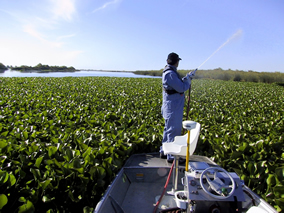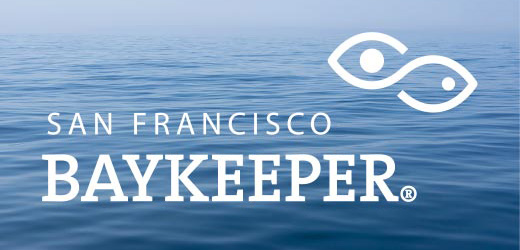Hard-won pesticide protections for creeks, rivers, fish and wildlife could be jeopardized by recent exaggerated cost estimates from the U.S. Environmental Protection Agency (EPA). The agency has suggested that the cost of implementing new rules on aquatic pesticide applications is almost $50 million, yet the estimate overlooks some basic facts of the new rules.
 The EPA is developing new nationwide regulations for the estimated 365,000 municipal government agencies, farmers and others who spray pesticides into waterways. One step in developing the regulations is estimating the costs to pesticide users. Baykeeper recently submitted a letter to the EPA expressing concern that the agency’s projected figure—$48 million for pesticide users to obtain permits and comply with regulations—is a gross overestimate.
The EPA is developing new nationwide regulations for the estimated 365,000 municipal government agencies, farmers and others who spray pesticides into waterways. One step in developing the regulations is estimating the costs to pesticide users. Baykeeper recently submitted a letter to the EPA expressing concern that the agency’s projected figure—$48 million for pesticide users to obtain permits and comply with regulations—is a gross overestimate.
One example of cost overestimation is the EPA’s projection that pesticide appliers will spend about $6 million a year on monitoring, even though the regulations require only visual monitoring of applications—a very low-cost measure. The EPA estimate also does not consider that overall fewer applications will occur because the new regulations require users to minimize their pesticide use.
Accurate cost estimation matters, in light of the recent legislation considered by Congress. This year the U.S. House of Representatives passed H.R. 872, a bill that would strip the EPA of its authority to regulate pesticides under the Clean Water Act. It is essential that the public has an accurate portrayal of pesticide regulation in the U.S. as the Senate considers the legislation this fall.
The EPA is developing these aquatic pesticide regulations as a result of an important federal Court of Appeals victory Baykeeper won in 2009. In this landmark decision, the court agreed with Baykeeper that pesticides sprayed into waterways harm the environment, and required the EPA to begin regulating aquatic pesticide use under the federal Clean Water Act. As of October 31, 2011, all applicators of biological and chemical pesticides must obtain a permit under the Clean Water Act to discharge pesticides to U.S. waterways.
Pesticides are manufactured to be toxic to living things and cause great harm to public health and aquatic ecosystems, particularly fish and amphibian life. In addition, pesticides move up the food chain and can contaminate drinking water supplies.
Since the ruling, Baykeeper has taken a lead role in advocating for the EPA to adopt strong pesticide regulations and for Congress to reject industry attempts to undermine these standards. We'll continue pressing for pesticide regulations that do the most to protect water quality and aquatic wildlife across the nation.
